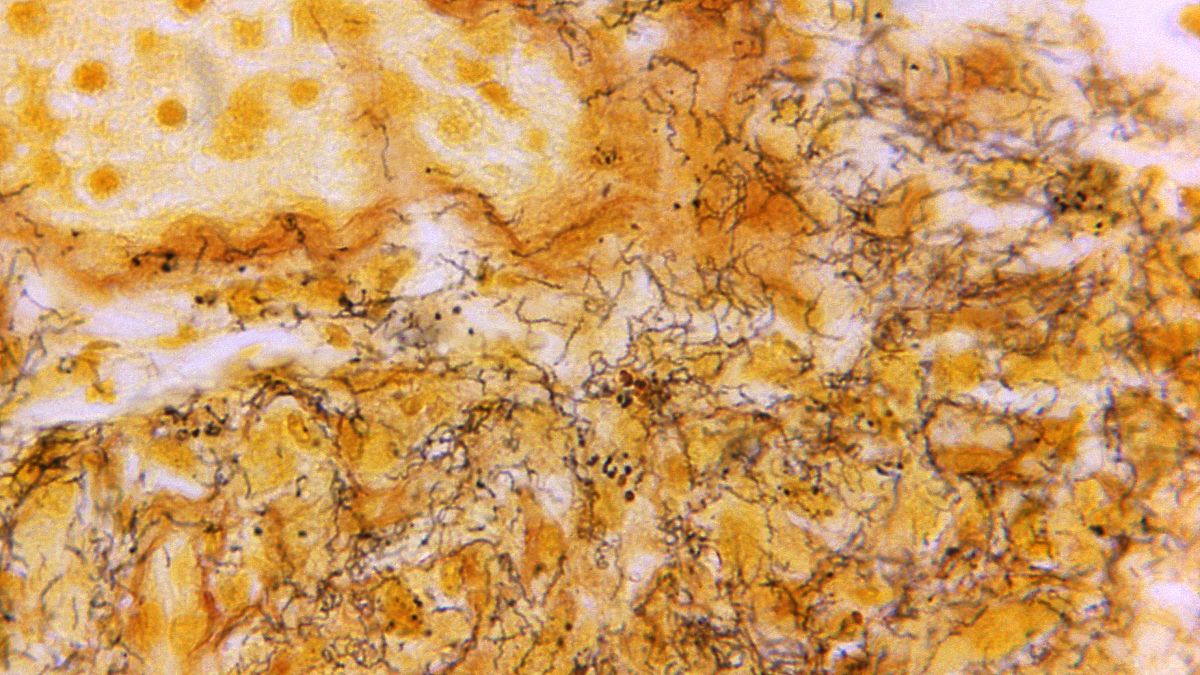The CDC said "increasing rates of syphilis among babies reflect a failure of the US health system".
An increasing number of babies in the United States are being born with syphilis, prompting health authorities to recommend more testing during pregnancy.
More than 10 times the number of babies were born with syphilis in 2022 than in 2012, the US Centers for Disease Control and Prevention (CDC) said, with more than 3,700 babies born with syphilis in the US in 2022.
This represented a 32 per cent increase in congenital syphilis cases (those transmitted from mother to infant) from 2021.
Syphilis is caused by a bacterium that is sexually transmitted, but most infections are asymptomatic and go unrecognised.
Primary syphilis or the first stage typically lasts around 21 days and includes a painless sore on the genitals, anus, or elsewhere. Secondary syphilis can include a non-itchy rash, according to the World Health Organization (WHO).
If untreated, the third stage can lead to brain and cardiovascular diseases.
Syphilis can cause adverse birth outcomes when transmitted by the mother during pregnancy, including miscarriage, stillbirth, lifelong health problems, and even newborn death, the CDC said.
Of the infants in the US born with syphilis in 2022, six per cent were stillborn.
In 2022, testing and treatment during pregnancy could have prevented 88 per cent of cases, they added.
'Failure of the US health system'
"Increasing rates of syphilis among babies reflect a failure of the US health system," the CDC said.
In most of the cases of congenital syphilis, the birth parents did not receive testing, did not receive timely testing or they did not receive adequate treatment.
Two in five parents who had a baby with syphilis did not receive prenatal care.
Syphilis can be effectively treated with an injection of penicillin, however, shortages of the antibiotic have influenced cases.
Pharmaceutical company Pfizer warned in June of impending limited supply and stock out for penicillin injections. They said the shortage was in part due to an increase in syphilis infection rates in the US.
US health authorities recommend offering syphilis testing to all sexually active people aged 15 to 44 in "high-risk" areas where the rate of primary and secondary syphilis is more than 4.6 per 100,000.
Syphilis prevalence decreased after the 1940s with antibiotics but has been resurging in many countries.
A European Centre for Disease Prevention and Control (ECDC) report in 2019 found that cases had been going up in Europe since 2010, mostly for men who have sex with men.
Despite increasing by 70 per cent in Europe since 2010, the ECDC added there was a decrease in congenital syphilis rates since 2005 in the EU/EEA.
Overall cases of congenital syphilis in Europe decreased in 2021 and 2020 compared to 2019, the ECDC said this year.



